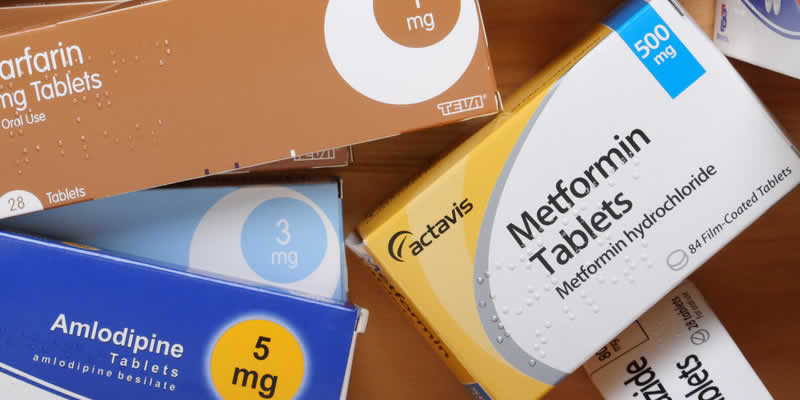Vitamin D, often dubbed the “sunshine vitamin,” is essential for strong bones, immune health, and overall well-being. However, a growing trend of self-diagnosing vitamin D deficiency has led many to take supplements unnecessarily, sometimes with harmful consequences. Misinterpreting common symptoms like fatigue or joint pain as a vitamin D deficiency, without proper testing, can mask other serious conditions. In this article, we’ll explore the dangers of misusing vitamin D supplements, how to confirm a true deficiency, symptoms often mistaken for low vitamin D, and safer ways to maintain healthy levels. Let’s clear up the confusion and help you make informed health choices.
Keywords: vitamin D misuse, vitamin D deficiency, unnecessary supplements, vitamin D testing, symptoms of vitamin D deficiency, causes of fatigue
1. The Rise of Vitamin D Misuse
Vitamin D deficiency is a legitimate concern, particularly in regions with limited sunlight or among individuals with specific risk factors like darker skin, older age, or indoor lifestyles. However, the hype around vitamin D has led to widespread self-diagnosis and overuse of supplements. Many people assume symptoms like tiredness or muscle aches signal low vitamin D and start high-dose supplements without medical guidance.
- Why the Misuse? Public awareness campaigns, coupled with easy access to over-the-counter supplements, have fueled the belief that “more is better.” Social media and wellness blogs often promote vitamin D as a cure-all, encouraging people to take doses far exceeding recommended levels.
- The Risks: Excessive vitamin D can lead to hypercalcemia (high blood calcium levels), causing kidney stones, heart rhythm issues, and organ damage. A 2022 study in The BMJ reported cases of vitamin D toxicity from overuse, with symptoms like nausea, confusion, and kidney failure.
2. Symptoms Mistaken for Vitamin D Deficiency
Many symptoms attributed to low vitamin D are non-specific and overlap with other conditions. Taking supplements without confirming a deficiency may delay diagnosis of the true cause. Here are common symptoms and alternative conditions to consider:
Fatigue and Weakness
- Vitamin D Connection: Severe deficiency can cause muscle weakness and low energy due to impaired muscle and bone function.
- Other Causes:
- Anemia: Low iron or vitamin B12 levels can cause persistent tiredness.
- Thyroid Disorders: Hypothyroidism leads to fatigue, weight gain, and brain fog.
- Depression: Low mood and lack of energy often mimic vitamin D deficiency.
- Sleep Apnea: Poor sleep quality can leave you exhausted.
Joint and Muscle Pain
- Vitamin D Connection: Deficiency may contribute to achy bones or muscles, particularly in severe cases like osteomalacia.
- Other Causes:
- Arthritis: Osteoarthritis or rheumatoid arthritis causes joint stiffness and pain.
- Fibromyalgia: Widespread muscle pain and tenderness are hallmarks.
- Autoimmune Diseases: Lupus or multiple sclerosis can cause similar aches.
Frequent Infections
- Vitamin D Connection: Vitamin D supports immune function, and deficiency may increase infection risk.
- Other Causes:
- Chronic Stress: Weakens immunity, leading to recurrent illnesses.
- HIV or Immunodeficiency: Compromised immune systems increase infection susceptibility.
- Poor Nutrition: Deficiencies in zinc or vitamin C can mimic this symptom.
Mood Changes
- Vitamin D Connection: Low levels are linked to seasonal affective disorder and mild depression.
- Other Causes:
- Clinical Depression: Persistent sadness or anxiety requires professional evaluation.
- Hormonal Imbalances: Menopause or low testosterone can affect mood.
- Vitamin B12 Deficiency: Causes neurological symptoms like irritability.
Relying on symptoms alone is risky, as these conditions require specific treatments that supplements won’t address.
3. How to Know If You Need Vitamin D Supplements
Before reaching for a supplement, confirm whether you have a deficiency and rule out other causes. Here’s how:
Step 1: Get a Blood Test
- What to Test: The 25-hydroxyvitamin D [25(OH)D] test is the gold standard for measuring vitamin D levels.
- Reference Ranges (per the National Institutes of Health):
- Deficient: <20 ng/mL (<50 nmol/L)
- Insufficient: 20–30 ng/mL (50–75 nmol/L)
- Sufficient: 30–50 ng/mL (75–125 nmol/L)
- Potentially Toxic: >100 ng/mL (>250 nmol/L)
- Who Needs Testing: Those with risk factors like limited sun exposure, darker skin, obesity, or malabsorption disorders (e.g., Crohn’s disease) should prioritize testing.
Step 2: Consult a Healthcare Provider
- A doctor can interpret your test results in context, considering your symptoms, medical history, and lifestyle. They may order additional tests (e.g., thyroid function, iron levels) to identify other causes of your symptoms.
- If deficient, they’ll recommend an appropriate dose (e.g., 1,000–4,000 IU/day for adults, per the Endocrine Society) and monitor levels to avoid toxicity.
Step 3: Explore Other Causes
- If vitamin D levels are normal, work with your doctor to investigate alternative diagnoses. For example:
- Fatigue: Check for anemia (complete blood count) or thyroid issues (TSH test).
- Joint Pain: Screen for arthritis (rheumatoid factor, imaging) or fibromyalgia.
- Mood Issues: Consider mental health evaluations or hormonal tests.
Step 4: Optimize Naturally
- Sun Exposure: Aim for 10–30 minutes of midday sun on face, arms, and legs, 2–3 times weekly, depending on skin type and location.
- Diet: Include vitamin D-rich foods like fatty fish (salmon, mackerel), egg yolks, and fortified dairy or plant-based milk.
- Lifestyle: Address obesity, as excess fat can sequester vitamin D, lowering circulating levels.
4. Dangers of Over-Supplementation
Taking vitamin D supplements when levels are normal or high can lead to toxicity, with serious health consequences:
- Hypercalcemia: Excess vitamin D increases calcium absorption, causing high blood calcium levels. Symptoms include nausea, vomiting, confusion, and kidney pain.
- Kidney Damage: Chronic overuse can lead to kidney stones or renal failure. A 2019 case report in Canadian Medical Association Journal described a patient hospitalized after taking 50,000 IU daily for months.
- Heart Risks: Elevated calcium levels may contribute to arrhythmias or vascular calcification.
- Bone Health Paradox: Ironically, excessive vitamin D can weaken bones by disrupting calcium balance.
The safe upper limit for adults is 4,000 IU/day (per the NIH), but some take megadoses (10,000–50,000 IU) based on misinformation, increasing these risks.
5. Who’s at Risk for Misusing Vitamin D?
Certain groups are more likely to misuse supplements:
- Wellness Enthusiasts: Those following unverified advice from influencers or blogs.
- Older Adults: May assume age-related aches signal deficiency.
- Individuals with Chronic Symptoms: Those with undiagnosed conditions like fibromyalgia or depression may self-treat with supplements.
- People in Sunny Climates: Even with ample sun exposure, some take supplements unnecessarily, assuming they’re still deficient.
6. Safer Ways to Maintain Vitamin D Levels
Instead of guessing, adopt evidence-based strategies to ensure healthy vitamin D levels:
- Test First: Always confirm deficiency with a 25(OH)D test before supplementing.
- Moderate Supplementation: If deficient, follow your doctor’s dosing advice (e.g., 1,000–2,000 IU/day for maintenance).
- Balanced Diet: Incorporate foods like fortified cereals, mushrooms, and cod liver oil.
- Safe Sun Practices: Use sunscreen after initial sun exposure to balance vitamin D synthesis and skin cancer prevention.
- Regular Check-Ups: Monitor levels every 6–12 months if supplementing, especially at higher doses.
Conclusion
The misuse of vitamin D supplements is a growing concern, driven by misconceptions about deficiency and non-specific symptoms like fatigue, pain, or low mood. While vitamin D is crucial for health, taking it unnecessarily can lead to toxicity and mask underlying conditions like anemia, thyroid disorders, or depression. To avoid the vitamin D trap, get a blood test, consult a healthcare provider, and explore other causes of your symptoms. By prioritizing evidence over assumptions, you can protect your health and maintain optimal vitamin D levels safely.




